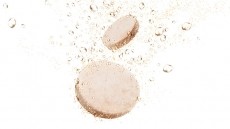Essential oils offer natural antioxidant alternatives for meats
alternative for processed meats, slowing oxidative spoilage as well
as imparting flavour and aroma, suggests a new study from Spain.
"The results of my research support the idea that new food ingredients from plant kingdom are of interest for the meat industry," lead author Mario Estvez from the University of Extremadura, told FoodNavigator.com.
"Using "functional ingredients" such as those containing flavonoids are excellent options to enhance the nutritional and technological properties of a wide range of foods," he said.
Interest is growing in plant-derived food additives as replacements to synthetic antioxidants like butylhydroxyanisole (BHA) and butylhydroxytoluene (BHT) to slow down the oxidative deterioration of food.
Indeed, according to a 2003 report by Frost and Sullivan, the synthetic antioxidant market is in decline, while natural antioxidants, such as herb extracts, tocopherols (vitamin E) and ascorbates (vitamin C) are growing, pushed by easier consumer acceptance and legal requirements for market access.
The research, to be published in the January 2007 issue of LWT - Food Science and Technology (Vol. 40, pp. 58-65), suggests that essential oils from common kitchen herbs rosemary and sage could also offer an interesting alternative, specifically for meat products.
To test the viability of the essential oils, Dr. Estvez and his co-workers investigated the antioxidant effect of sage and rosemary essential oils, and compared this with BHT, on refrigerated stored liver pâté, a product generally considered to be value-added with high sensory and nutritional qualities.
The pâtés were stored at four degrees Celsius for 90 days, and analysis of the levels of polyunsaturated fatty acids (PUFA), thiobarbituric acid reactive substances (TBARS) numbers, and lipid-derived volatiles were performed every 30 days.
Compared to the BHT and control pâtés (no antioxidant added), the decrease in PUFA levels after 30 days was significantly less for the essential oils, report the scientists. However, no significant differences were observed after 90 days.A measure of the oxidative deterioration of the fat content, as measured by TBARS numbers showed that the essential oils were significantly more effective at inhibiting lipid oxidation, compared to BHT (28 per cent inhibition, compared to 48 and 52.5 per cent for sage and rosemary, respectively).
"Results from the present study agree with those obtained [previously], denoting even the possibility of replacing synthetic antioxidants such as BHT with natural extracts with antioxidant activity obtained from plants," wrote the authors.
The headspace solid-phase microextraction (HS-SPME) technique was used to analyse volatile compounds that are produced by the auto-oxidation of lipids in the meat product. Measurment of these off-flavours and odours showed that, after 90 days of refrigerated storage, the herbal essential oils had the lowest amounts of compounds typical of off-flavoured, oxidized liver, such as hept-(Z)-4-enal, non-(E)-2-enal, nona-(E,E)-2,4-dienal. The control pâté had the highest amount, while the BHT pâté had an intermediate amount.
"Furthermore, the addition of plant essential oils greatly influences the aromatic profile of the products in which they are added since some volatile components of these essential oils are terpenes which might contribute to add specific aromatic notes," they noted.
Taken together, these results led the researchers to conclude that the plant essential oils could be considered as suitable alternatives to synthetic antioxidants like BHT.
Despite the positive results, Dr. Estvez told this website that there were several challenges with using the essential oils: "Regardless of the costs, the main challenges of using these substances on meat products are related to consumer's acceptability.
"It is essential to carry out experimental works to prove the effectiveness of these substances is every single product because their activity as antioxidants depends on a large number of factor including the characteristics of the food," he said.












